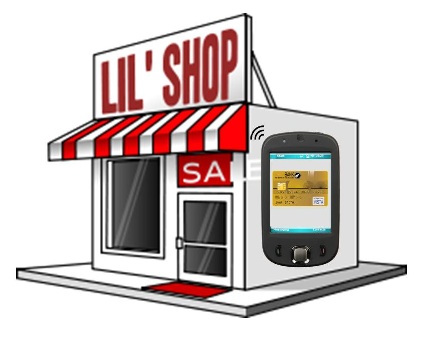Companies have invested in India’s leading mobile commerce organization, Paytm
Alibaba and its affiliate Ant Financial Services have made an investment in Paytm, a prominent mobile commerce company based in India. The two companies have invested $680 million in Paytm, which will provide the firm with the financial support it needs to continue expanding its services in India. Alibaba continues to show strong interest in mobile commerce in other countries and has become one of the major competitors in the mobile payments market in Asia.
Investments will help Paytm expand its services in order to better engage consumers
The investment will help Paytm scale up and continue developing is mobile commerce ecosystem. Some of the funds will go toward marketing the company’s services, developing new payment technologies, and hiring additional staff. Earlier this year, Paytm also received an investment from Alipay, which is Alibaba’s mobile commerce unit operated by Ant Financial Services. The amount invested by Alipay was undisclosed, but provided significant support to Paytm.
India is becoming a very attractive mobile commerce market
 Daniel Zhang, CEO of Alibaba, notes that India has become a very promising mobile commerce market. E-commerce has thrived in the country and more consumers are beginning to use their smartphones in order to shop online. Smartphone adoption has accelerated, which has furthered the exposure of consumers to the concept of mobile commerce, which many have fallen in love with. Shopping with a mobile device often represents a more convenient way for consumers to get their shopping done, especially for those that have long commutes.
Daniel Zhang, CEO of Alibaba, notes that India has become a very promising mobile commerce market. E-commerce has thrived in the country and more consumers are beginning to use their smartphones in order to shop online. Smartphone adoption has accelerated, which has furthered the exposure of consumers to the concept of mobile commerce, which many have fallen in love with. Shopping with a mobile device often represents a more convenient way for consumers to get their shopping done, especially for those that have long commutes.
Companies are showing strong interest in India’s mobile market
Several foreign companies have begun showing interest in India’s mobile commerce space. These companies are showing support for various mobile payments firms in the country, which is increasing the competition in the market. With increases competition, firms are beginning to feel pressure to provide better mobile commerce services to consumers. They are also seeking to form better partnerships with financial service firms in India and banks that have also taken an interest in the mobile space.
Small merchants have yet to show enthusiasm for mobile payments
Mobile commerce is having difficulty gaining traction among small businesses in the United States. According to the U.S. Census Bureau, these companies account for more than 90% of the businesses in the country, but they have yet to show significant support for mobile payments. Large retailers and banks, however, have become quite enthusiastic about mobile commerce, offering consumers services that allow them to manage their money and shop directly from the smartphones and tablets.
NFC technology proves somewhat unattractive for small businesses
One of the reasons that small businesses may not be supporting mobile payments is because NFC technology comprises much of the mobile commerce infrastructure. NFC technology allows digital information to be transmitted over short distances and it has become a powerful tool for the mobile payments space. Most prominent payment services, such as Apple Pay, make use of this technology in order to facilitate transactions, but this requires that physical merchants have an NFC-enabled terminal that is able to interact with this technology.
EMV standards may drive the adoption of mobile commerce among retailers
 For small businesses, adoption of NFC technology may be too costly, which has stunted the growth of mobile commerce among some merchants. An alternative, however, is new Europay, MasterCard, and Visa (EMV) standards, which retailers are required to embrace by October 1. These standards allow all retailers to adopt new payment terminals that support EMV cards. This will allow retailers to also embrace mobile payments, because EMV-enabled cards will be associated with the payment services being used by consumers.
For small businesses, adoption of NFC technology may be too costly, which has stunted the growth of mobile commerce among some merchants. An alternative, however, is new Europay, MasterCard, and Visa (EMV) standards, which retailers are required to embrace by October 1. These standards allow all retailers to adopt new payment terminals that support EMV cards. This will allow retailers to also embrace mobile payments, because EMV-enabled cards will be associated with the payment services being used by consumers.
Small retailers have little interest in EMV standards
While small retailers will also have to adopt EMV-enabled terminals, many have yet to outline plans to do so, partly due to high costs. If retailers do not embrace the new EMV standards, they will be held liable for any fraudulent purchases that are made through their establishments. Once small retailers begin feeling the consequences of these fraudulent purchases, however, they are likely to adopt the standards and begin acquiring EMV-enabled terminals.
 Daniel Zhang, CEO of Alibaba, notes that India has become a very promising mobile commerce market. E-commerce has thrived in the country and more consumers are beginning to use their smartphones in order to shop online. Smartphone adoption has accelerated, which has furthered the exposure of consumers to the concept of mobile commerce, which many have fallen in love with. Shopping with a mobile device often represents a more convenient way for consumers to get their shopping done, especially for those that have long commutes.
Daniel Zhang, CEO of Alibaba, notes that India has become a very promising mobile commerce market. E-commerce has thrived in the country and more consumers are beginning to use their smartphones in order to shop online. Smartphone adoption has accelerated, which has furthered the exposure of consumers to the concept of mobile commerce, which many have fallen in love with. Shopping with a mobile device often represents a more convenient way for consumers to get their shopping done, especially for those that have long commutes.
 For small businesses, adoption of NFC technology may be too costly, which has stunted the growth of
For small businesses, adoption of NFC technology may be too costly, which has stunted the growth of 